Vocabulary development Normal Building Vocabulary Worksheets for Ages 8-9
7 filtered results
-
From - To
Enhance your child's language skills with our "Vocabulary Development Normal Building Vocabulary Worksheets" designed for ages 8-9. These engaging worksheets focus on expanding vocabulary through fun and interactive exercises, helping young learners understand and use new words effectively. Each worksheet is carefully crafted to improve reading comprehension and language proficiency, aiding children in recognizing word meanings, synonyms, antonyms, and context usage. Unlock your child's potential with activities that make learning new words exciting and rewarding. Ideal for both classroom and home use, our vocabulary worksheets are a perfect tool for fostering lifelong language skills.
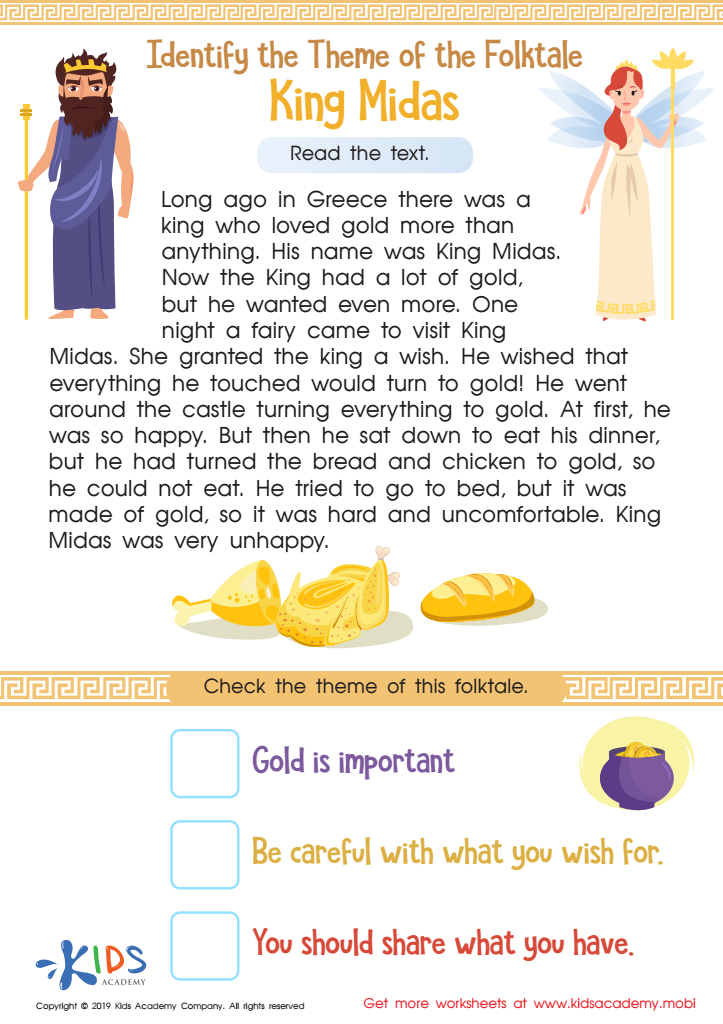

King Midas Worksheet
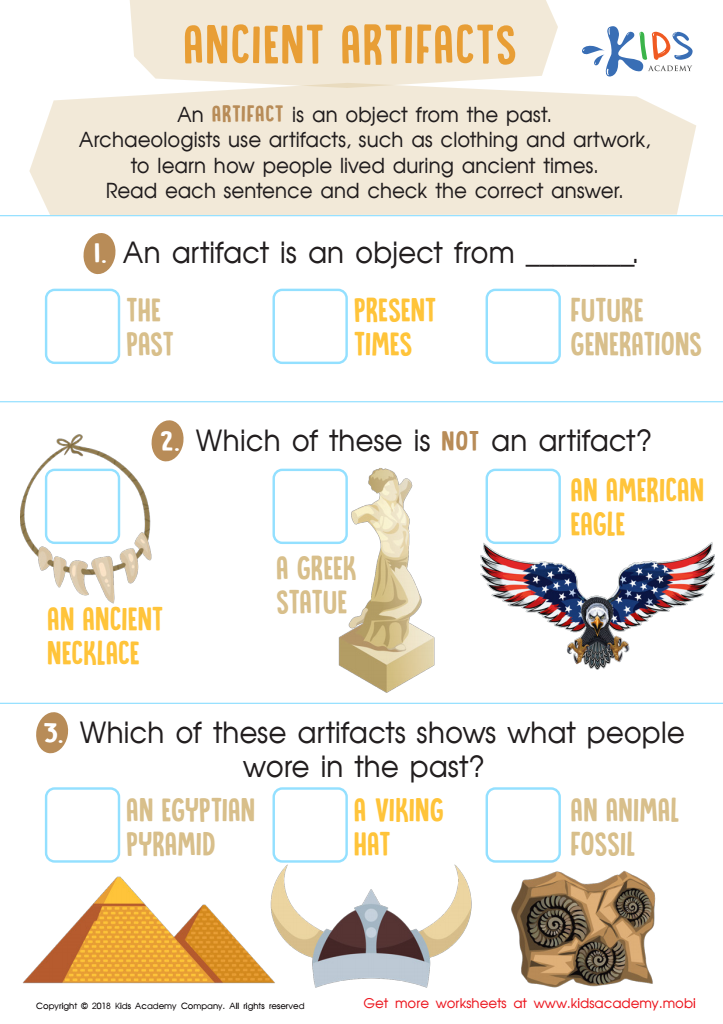

Ancient Artifacts Worksheet


Phonics and Word Recognition: Assessment 3 Worksheet
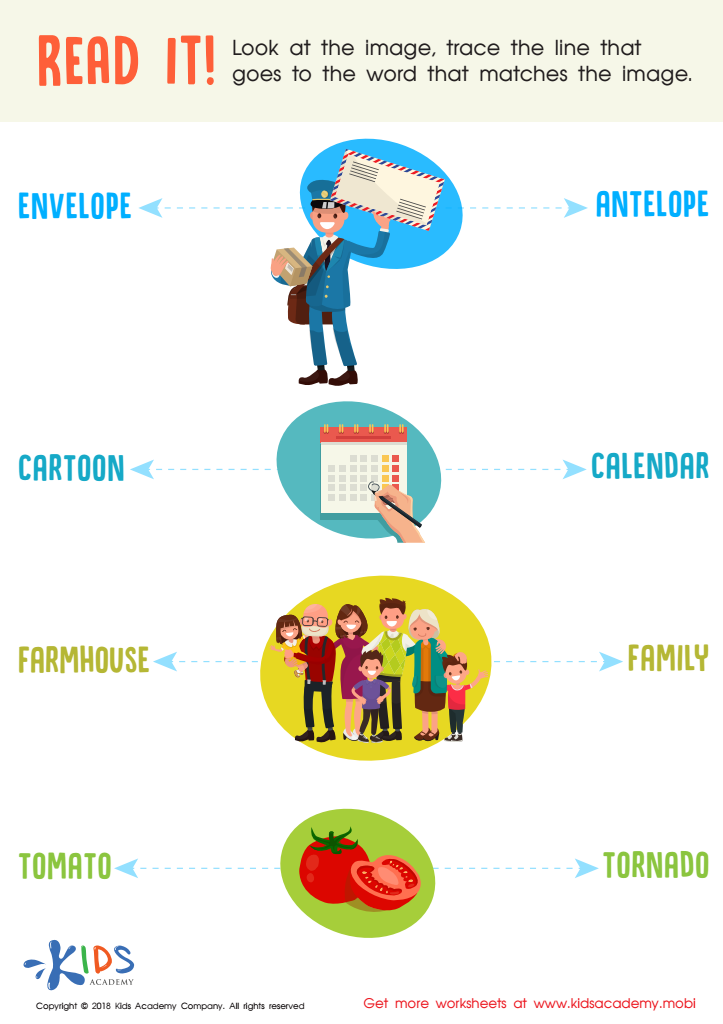

Read It! Worksheet
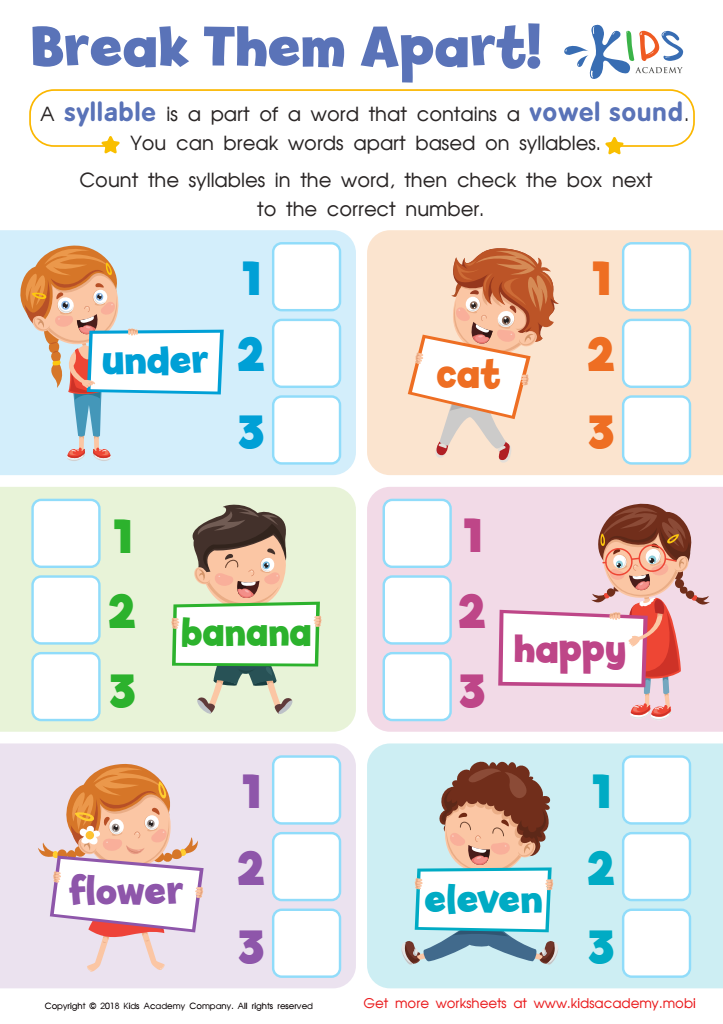

Reading: Break Them Apart Worksheet
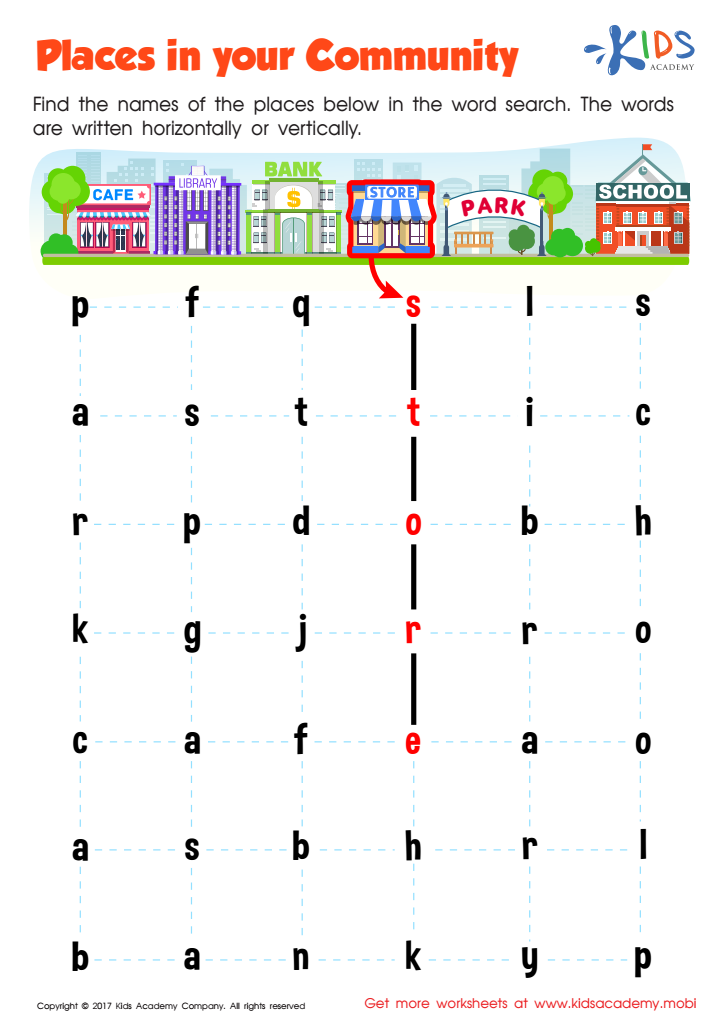

Places in Your Community Worksheet
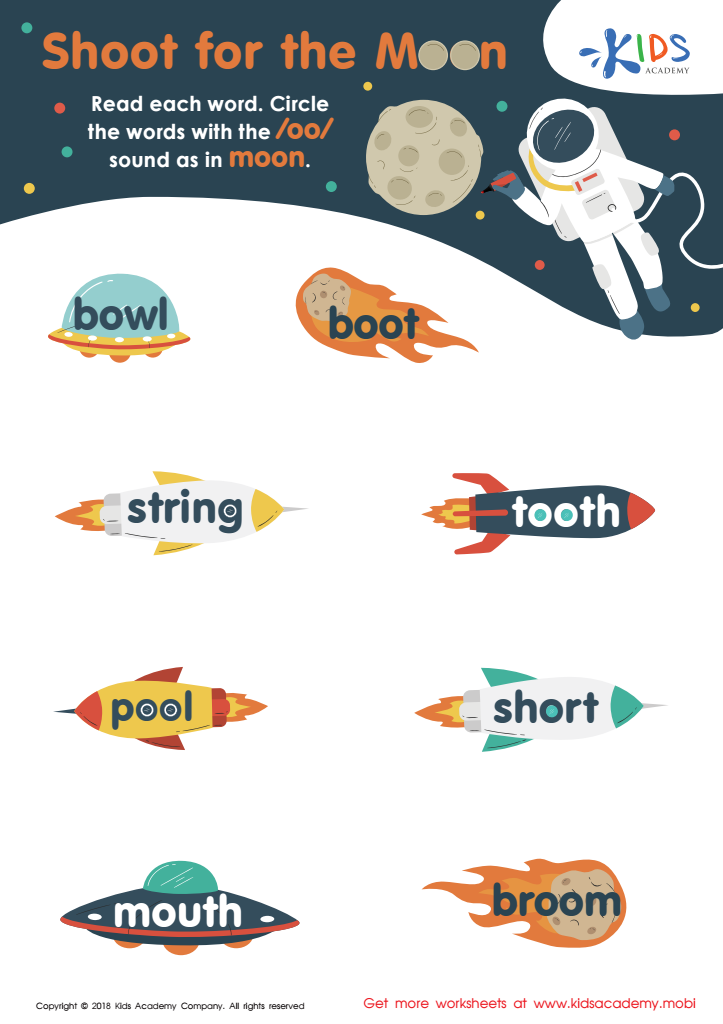

Reading: Shoot for the Moon Worksheet
Vocabulary development is crucial for children aged 8-9 as it lays the foundation for effective communication, reading comprehension, and academic success. At this age, students transition from learning to read to reading to learn. A robust vocabulary boosts their ability to understand complex texts, follow instructions, and express ideas clearly. This supports not only language arts but also other subjects like science, math, and social studies that increasingly rely on text-based information.
Parents and teachers play a pivotal role in enhancing vocabulary. They provide diverse words through conversation, reading aloud, and encouraging independent reading. This exposure nurtures curiosity and a love for learning, thereby motivating children to explore new concepts.
Moreover, a rich vocabulary strengthens cognitive skills such as critical thinking, problem-solving, and creativity. Children can more effectively grasp abstract ideas, make connections between topics, and articulate their thoughts. Socially, possessing a wide range of words enhances peer interactions and reduces frustration stemming from inability to communicate thoughts and feelings.
Lastly, early vocabulary development is linked to long-term academic performance, preventing future reading difficulties. Thus, investing in vocabulary-building activities equips children with tools for lifelong learning and success, making it an essential priority for parents and teachers.

 Assign to My Students
Assign to My Students






























